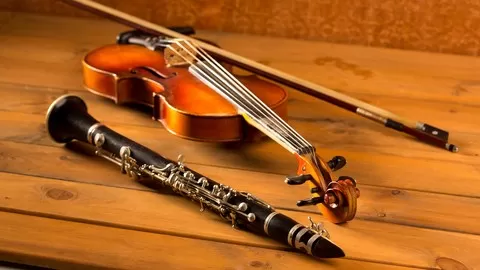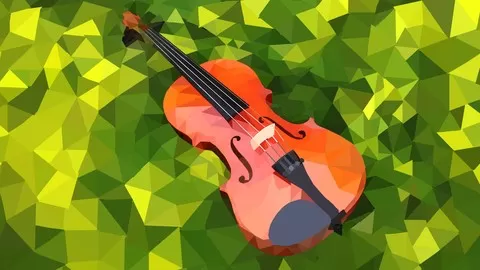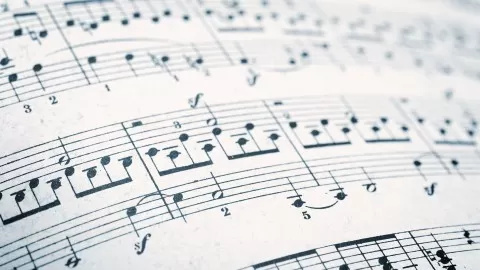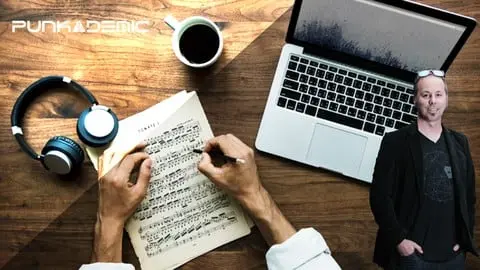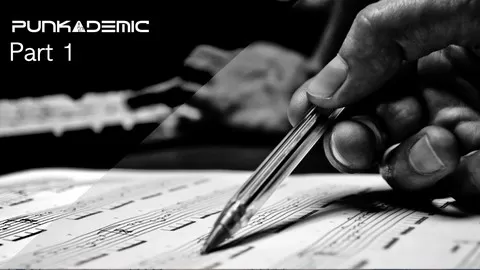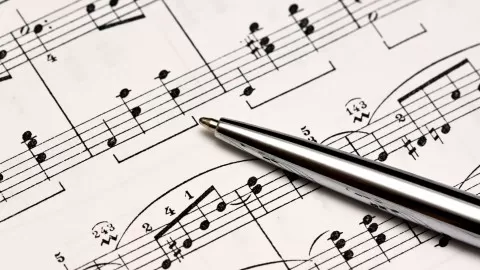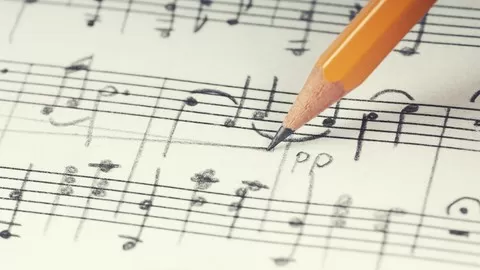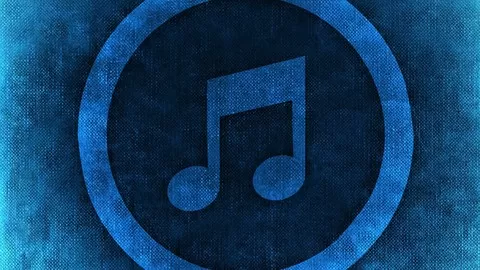The course is divided into two parts: part 1 is on Instrumentation and part 2 is on Orchestration. Instrumentation is an important and necessary first step since you cannot write for orchestra if you don’t know about the individual instruments of the orchestra.
In part 1 you will learn how each instrument is constructed, how they produce sound, how they are properly notated, their playing and sounding ranges, register characteristics, dynamic capabilities and common playing techniques.
In part 2 you will learn basic concepts for writing for orchestra, including how to create and effectively use different timbres and textures, the best methods for scoring chords, the roles each instrument and section play within the whole, how to properly prepare a score and parts, and how to proof before publishing. The course concludes with an entire section of helpful orchestration tips and techniques. There are also a number of useful reference charts in the appendix.
At key points in the course you will be given score reading assignments, listening assignments, composing assignments, and quizzes.
A vital component to the study of orchestration is score reading, and so throughout the course you will be asked to read scores. There are some score excerpts in the course but the majority of score reading will be done on your own. There is an important reason for this. Taking a course in orchestration is a great start to learning how to write for orchestra but the only way to become truly knowledgeable and skilled in this very complex art form is through a lifetime of score study and through a lifetime of experience gained from actual writing for orchestra. This cannot be emphasized enough.
Note: This is not a music theory course or a music composition course. This course was written for individuals who already have a basic foundation in music theory (including music notation) and music composition. If you need or would like to develop your knowledge in these areas please see the following courses by the instructor.
Music Theory
Music Composition 1
Music Composition 2
Four-part Harmony
Learn how to compose well-written rhythms and melodies
4.6
★★★★★ 4.6/5
13,009 students
